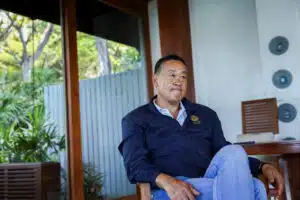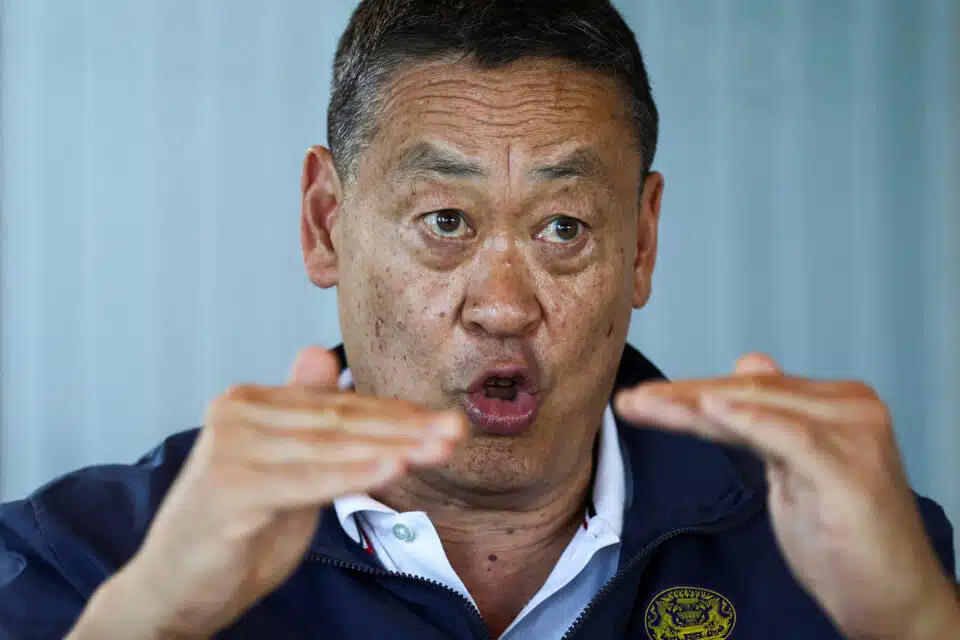SAMUI, April 9 — Thai Prime Minister Srettha Thavisin said the central bank should cut its key interest rate by at least a quarter point this week to support government efforts to revive Southeast Asia’s second-largest economy.
“Given the inflation numbers, which are still negative, my expectation is perhaps not even 0.25 (point cut), maybe 0.5, because it is long overdue. It should have been cut since late last year,” said the 62 premier to Reuters in an exclusive interview.
The Bank of Thailand has so far resisted government pressure to ease policy, holding its benchmark interest rate at 2.50 per cent in February, the highest in over a decade. Most economists expect rates to be held at its next review tomorrow.
The Prime Minister, who came to power in August last year, said the economy might have expanded less than one per cent in the first quarter of 2024, following the annual 1.7 per cent growth in the previous three months.
Srettha said a major boost in domestic consumption is also needed, vowing to forge ahead with his government’s flagship “digital wallet” handout scheme worth 500 billion baht (RM64.93 billion) in the fourth quarter to revive the economy.
“Hopefully, by the first quarter of next year, we will see some results,” he said during the interview on the resort island of Samui on Sunday (April 7).
Some experts have criticised the plan, saying it is fiscally irresponsible and that fixing Thailand’s economy requires addressing structural problems.
Srettha ruled out using a loan bill to finance the scheme without elaborating on plans to fund the initiative, which over 50 million people will be eligible for.
Srettha, who described himself as a salesman for the country, has spent a third of his time in office overseas promoting Thailand as an investment destination, offering tax and business incentives for foreign firms.
“Since taking over the office, we have had nearly 10 Chinese EV firms that will be coming here, big data centres… from Amazon, Google, Microsoft, and the whole world.
“If I had not gone out to try to sell Thailand, they might have gone to Indonesia, Malaysia, Singapore, Vietnam,” he said.

Clean energy, tourism push
Thailand’s push for clean energy is also important in attracting investment as the country targets sourcing half its energy from clean sources such as solar and wind by 2040.
Srettha said Thailand is also exploring nuclear power as a long-term option.
“It is a possibility because technology is now so advanced,” he said, adding ‘it is the cheapest and it is more stable’.
Tourism, a major economic driver, is another area which the Prime Minister said needs further boosting.
His government has already introduced free-visa entry for major markets, including China, and plans to expand it to other countries.
“Next year, by the way, will be the biggest ever year for Thai tourism,” he said, with events and incentives to increase tourist numbers.
“There will be world events… and many other things, concerts, (an) art fair,” Srettha said.

Bridging the world
The Thai government will conduct roadshows in May and June to promote the land-bridge initiative in southern Thailand that involves investments worth an estimated one trillion baht (RM128.2 billion) to build two deep sea ports and 90km of road and rail connecting the Andaman Sea and the Gulf of Thailand.
Srettha said the project will offer an alternative route to the congested Strait of Malacca, the narrow sea lane between Malaysia and Indonesia through which much of the trade between Asia, Europe, and Africa passes.
“The next 10, 15 years, the trade volume by ships will also increase significantly… given the rise of population in the Middle East and African nations,” he said.
“There will be demand for food and services all over the world. (But) we are not actually competing with Singapore. We are actually complementing (it),” he said.
Major projects like the land bridge, which will help Thailand integrate further into the global trade economy, are vital for the country’s future.
“We need to have tools to ensure we have a place in this global, turbulent world. We are friendly to everybody, and that’s also extending our foreign ministry policy as well,” Srettha said.
— Reuters





